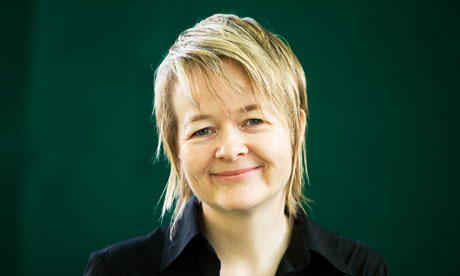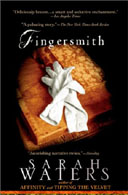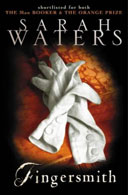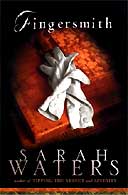Dr Faraday, the narrator of The Little Stranger, believes in natural explanations. He even has a ready language of "nervous" disorders to explain the gathering fears of the Ayres family about the strange occurrences in their old house. He is forever telling them they are "tired", susceptible to every fancy. The reader's uncertainty – is this a ghost story? – is kept taut by the narrator's refusal to believe in the supernatural. Waters's technique is to make him give us the evidence to doubt his own perceptions. His own witnessing of anything that might be thought supernatural is limited. He sees the peculiar marks on Roderick Ayres's bedroom walls and ceiling, but most of the novel's strange "incidents" take place in his absence and are reported to him. It is open to him to believe that one character or another has been deluded or fantasising.
Yet Faraday, for all his appeals to fact and reason, is not literal-minded. His own fancy keeps reaching out into the family he has befriended and their huge, crumbling house. Though his vocabulary is restricted, and his idea of description sometimes pedantic, he likes figures of speech that imagine what he cannot know. His favourite rhetorical trope is a special kind of simile for which there is, as far as I know, no special name. It involves the use of the phrase "as if". When he arrives at Hundreds Hall in the opening chapter, he describes pulling on the bell-pull and hearing "the ring of it, pure and clear, but distant, as if in the belly of the house". As he feels his way into relationships with the three members of the Ayres family, the "as if" simile becomes a kind of tic. At first it is to suggest small psychological nuances, but soon Faraday is explicitly imagining things. Seeing Caroline in the weeks after her dog has been put down for viciously attacking a child, he thinks her face heavy and plain, "as if, with the loss of her dog, there had come something like the loss of her optimism and youth". He asks her brother about her state of mind, but "he turned his head from me as if not trusting himself to reply". Such "as ifs" are hardly similes at all – more like inferences.
When strange things happen, Faraday's fanciful similes are at odds with his professed rationalism. When Caroline shows him three apparent scorch marks in Rod's room, he recalls the burns on her brother's face as a result of being shot down in the war. "It was as if the house were developing scars of its own, in response to his unhappiness and frustration." When Faraday explains that Rod is mentally ill, overwhelmed by fantasies about a malign ghostly presence, Caroline, he tells us, listened "with a sort of dawning comprehension, as if my words made a ghastly sense to her". His "as if" registers their covert plausibility.
The "as if" simile often expresses a far-fetched thought, a strange fancy. Dickens, the most fantastic of great novelists, is the master of it. "Mr Jaggers never laughed; but he wore great bright creaking boots, and, in poising himself on these boots, with his large head bent down and his eyebrows joined together, awaiting an answer, he sometimes caused the boots to creak, as if they laughed in a dry and suspicious way." This tells us as much about the narrator (of Great Expectations) as about the character, and so too in The Little Stranger.
Drinking too much whisky and explaining to Seeley, a fellow local GP, what is happening up at the hall, Faraday says: "It's as if – well, as if something's slowly sucking the life out of the whole family." And then again, a few moments later: "It's as if the house is in the grip of some sort of miasma." The form of the simile allows him to pursue the supernatural theories that he scorns. Mrs Ayres comes to believe that the ghost of her dead daughter is importuning her. Faraday examines her arm and finds "a faint bruise, curiously shaped, as if the flesh had been pinched and twisted by a small, determined hand" – though he officially diagnoses self-harm. Of course Waters has Faraday use this trope at the novel's most unsettling moment. Testifying in court, he either imagines or remembers a last meeting with Caroline. "Just for a moment – as if it were there, in the silvered surface of her moonlit eye – I even seemed to catch the outline of some shadowy, dreadful thing . . ."
And then at the novel's end, wandering the dilapidated, empty house, the narrator muses on how the house survives all: "It is as if the house has thrown the family off, like springing turf throwing off a footprint."
The house seems his now. He has told us the facts, as far as he could understand them. But he has also led us down the path of his own hardly acknowledged fancies – as if without meaning to do so.
• John Mullan is professor of English at University College London. Join him and Sarah Waters for a discussion on 10 August at 7pm in Hall One, Kings Place, 90 York Way, London N1. Tickets are £9.50 online (kingsplace.co.uk) or £11.50 from the box office (020 7520 1490).










